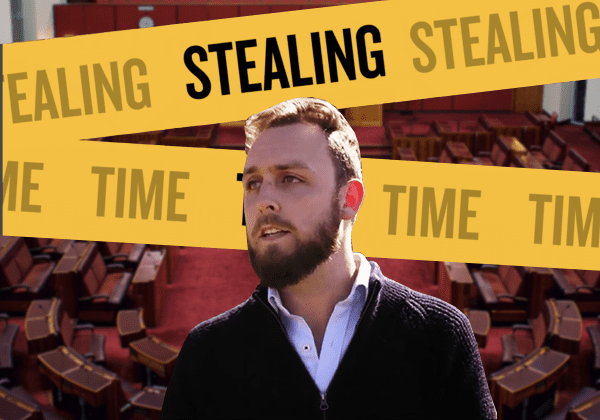In a public hearing this morning, a panel of academic staff from Casualised, Unemployed, and Precarious University Workers (CUPUW) provided evidence of wage theft at universities for a Senate inquiry into unlawful underpayment.
The inquiry commenced in November, when underpayment of casual staff across Australia’s universities were brought to light. Subsequently, ten universities made back payments and the University of Sydney admitted to wage theft of almost $9 million. Individual cases are currently being heard.
Today’s sitting saw Dr Yaegan Doran of the USyd Casuals Network speak on the situation at the University of Sydney.
Underpayment ‘embedded’ in university model
In its submission, the USyd Casuals Network asserted that underpayment is a result of casual staff being paid ‘piece rates.’ In this system, payments are tied to a ‘piece’ of work — for example, a number of lectures, tutorials, or assessments marked.
The amount of time to complete each piece is then estimated. However, staff have reported that the actual hours it takes to complete these tasks, in order to maintain the quality of education, far exceeds the hours allotted, and that preparation time is often not covered.
An audit by the Casuals Network found that in the first six weeks of last semester, 84% of participants performed work in excess of the hours for which they were paid, meaning that underpayment averaged $2521 per person.
“Because the university system rests on these piece rates with casual staff, underpayment is embedded within the system,” Dr Doran said.
“Our choice is: do our jobs poorly, harm our students and not be employed again, or do our job well and work many hours unpaid.”
University denies large-scale wage theft
The University was criticised for failing to take action on several opportunities to address its problem of wage theft.
In the University’s submission to the Senate inquiry last September, former Vice-Chancellor Dr Michael Spence denied that staff are subjected to “large scale wage theft,” or that casualisation in tertiary education was driving underpayment.
Dr Spence claimed that instances of underpayment were a result of “payment errors” rather than under-classification of work or excessive underpaid hours.
Dr Doran pointed to the several instances where the University was made aware of consistent and systematic underpayment of staff, including two reports by the National Tertiary Education Union (NTEU), the Casual Networks’ Stealing Time interim report, and recent coverage of underpayment of library staff.
Pointing to how employing staff as casuals is cheaper than employing them permanently, Dr Doran said that “for anyone to raise that [the University is] consistently underpaying casual staff is to very much push at the heart of their entire financial model.”
“They know they underpay us. And if they did pay us correctly, they might have to employ us permanently — that is exactly what they don’t want to do.”
Casual staff punished for speaking up
Dr Doran told the Senate Committee that staff who have spoken out about underpayment have had their hours reduced or eliminated.
While noting that “it’s difficult to link precisely that speaking up leads to not being re-employed,” Dr Doran recounted one particular incident where a casual staff member, an international student and casual tutor at the University, was suddenly given “no work whatsoever” after supporting the Casual Network’s actions. As a result, that staff member — along with their colleagues — refused to speak at the inquiry.
There have also been reports of employees being blacklisted by universities, but the presence of blacklists remains unconfirmed.
Moving forward
The Casuals Network recommended that the piece rate system be abolished and replaced by a timesheet system, where staff enter actual hours worked and are paid for those hours. This is in line with most contracts that engage staff in research.
Dr Doran also implored the University to consult with impacted staff in their audit. Last year, USyd engaged PriceWaterhouseCoopers (PwC) to audit staff payments. However, he said that this was an “untransparent” process that has not involved any consultation or communication.
“It’s not the type of thing that I think will come up with a solution that is anything but useful for University management.”
Other academics from CUPUW also made recommendations such as increasing funding to student and teaching unions to conduct more independent research on wage theft, introducing criminal penalties for employers that engage in wage theft, and raising the rate of JobKeeper to ensure that staff are able to leave abusive workplace conditions and still put food on the table.





